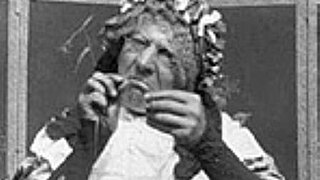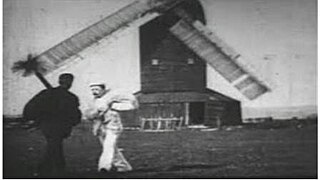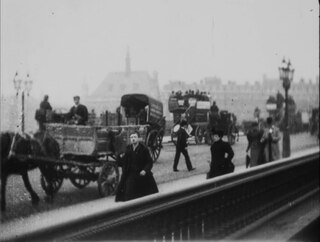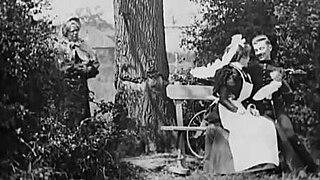
The oldest known surviving film was shot in the United Kingdom as well as early colour films. While film production reached an all-time high in 1936, the "golden age" of British cinema is usually thought to have occurred in the 1940s, during which the directors David Lean, Michael Powell, and Carol Reed produced their most critically acclaimed works. Many British actors have accrued critical success and worldwide recognition, such as Audrey Hepburn, Olivia de Havilland, Vivien Leigh, Glynis Johns, Maggie Smith, Laurence Olivier, Michael Caine, Sean Connery, Ian Mckellen, Joan Collins, Judi Dench, Julie Andrews, Daniel Day-Lewis, Gary Oldman, Emma Thompson, Anthony Hopkins, Peter O’Toole and Kate Winslet. Some of the films with the largest ever box office returns have been made in the United Kingdom, including the fourth and fifth highest-grossing film franchises.

ABC Television Limited, popularly known as ABC Weekend TV, was a British broadcaster which provided the weekend service in the Midlands and Northern England regions of the Independent Television (ITV) network from 1956 to 1968. It was one of the "Big Four" companies that between them produced the majority of ITV networked programmes during this period.

The British Film Institute (BFI) is a film and television charitable organisation which promotes and preserves film-making and television in the United Kingdom. The BFI uses funds provided by the National Lottery to encourage film production, distribution, and education. It is sponsored by the Department for Culture, Media and Sport, and partially funded under the British Film Institute Act 1949.

The Grove Family is a British television series soap opera, generally regarded as the first of its kind broadcast in the UK, made and broadcast by the BBC Television Service from 1954 to 1957. The series concerned the life of the family of the title, who were named after the BBC's Lime Grove Studios, where the programme was made.

Birt Acres was an American and British photographer and film pioneer. Among his contributions to the early film industry are the first working 35 mm camera in Britain (Wales), and Birtac, the first daylight loading home movie camera and projector. He also directed a number of early silent films.

The Alhambra Theatre was a popular theatre and music hall located on the east side of Leicester Square, in the West End of London. It was built as the Royal Panopticon of Science and Arts, opening on 18 March 1854. It was closed after two years for a circus ring to be added, and reopened in April 1858 as the Alhambra. The name was also adopted by many other British music hall theatres located elsewhere: the Alhambra Theatre, Bradford, the Alhambra Theatre Glasgow, etc. The name comes from association with the Moorish splendour of the Alhambra palace in Granada, Spain. The building was demolished in 1936.

Robert William Paul was an English pioneer of film and scientific instrument maker.

Rough Sea at Dover is an 1895 British short black-and-white silent film, shot by Birt Acres.

The Kiss in the Tunnel, also known as A Kiss in the Tunnel, is a 1899 British short silent, comedy film, produced and directed by George Albert Smith, showing a couple sharing a brief kiss as their train passes through a tunnel, which is said to mark the beginnings of narrative editing. The film is the first to feature Laura Bayley, Smith's wife.

Grandma Threading her Needle is a 1900 British short silent comedy film, directed by George Albert Smith, featuring an old woman trying to get a thread though a needle. The sole purpose of the 56-second single-shot film, like the director's earlier Old Man Drinking a Glass of Beer (1898), according to Michael Brooke of BFI Screenonline, "is to record changing facial expressions for the purposes of entertainment."

The Miller and the Sweep is a 1898 British short black-and-white silent comedy film, directed by George Albert Smith, featuring a miller carrying a bag of flour fighting with a chimney sweep carrying a bag of soot in front of a windmill, before a crowd comes and chases them away. The film, according to Michael Brooke of BFI Screenonline, "was one of the first films made by G.A. Smith, shortly after he first acquired a camera," and is also, "one of the earliest films to show a clear awareness of its visual impact when projected."

Explosion of a Motor Car is a 1900 British silent comic trick film, directed by Cecil M. Hepworth, featuring an exploding automobile scattering the body parts of its driver and passenger. "One of the most memorable of early British trick films" according to Michael Brooke of BFI Screenonline, "was one of the first films to play with the laws of physics for comic effect." It features one of the earliest known uses in a British film of the stop trick technique discovered by French filmmaker Georges Méliès in 1896, and also includes one of the earliest film uses of comedy delay – later to be widely used as a convention in animated films – where objects take much longer to fall to the ground than they would do in reality. It is included in the BFI DVD Early Cinema: Primitives and Pioneers and a clip is featured in Paul Merton's interactive guide to early British silent comedy How They Laughed on the BFI website.

Santa Claus is an 1898 British silent trick film directed by George Albert Smith, which features Santa Claus visiting a house on Christmas Eve. The film, according to Michael Brooke of BFI Screenonline, "is believed to be the cinema's earliest known example of parallel action and, when coupled with double-exposure techniques that Smith had already demonstrated in the same year's The Mesmerist (1898) and Photographing a Ghost (1898), the result is one of the most visually and conceptually sophisticated British films made up to then." It has been described as the very first Christmas movie and a technical marvel of its time.

Blackfriars Bridge is an 1896 British short black-and-white silent actuality film, directed by Robert W. Paul, featuring top-hatted pedestrians and horse-drawn carriages passing over Blackfriars Bridge, London. The film was, according to Michael Brooke of BFI Screenonline, "taken from the southern end looking northwards over the Thames by R.W. Paul in July 1896," and, "screened as part of his Alhambra Theatre programme shortly afterwards, certainly no later than 31 August"

A Sea Cave Near Lisbon is an 1896 British short silent actuality film, directed by Henry Short, featuring a view looking out to sea through the Boca do Inferno cave near Lisbon, with waves breaking in. The film was popular with audiences and received positive reviews.

A Railway Collision is a 1900 British short silent drama film, directed by Walter R. Booth and produced by Robert W. Paul. It was one of a number of sensationalist "trick films" made at Paul's Animatograph Works, his studio in Muswell Hill in north London, and represents one of only a very small number of surviving films by Paul.

The Cheese Mites (1903) is a British short silent documentary film, produced by Charles Urban and directed by F. Martin Duncan.

Comic Costume Race is an 1896 British short black-and-white silent actuality film, directed by Robert W. Paul, featuring comic costume scramble at the Music Hall Sports on 14 July 1896 at Herne Hill, London. The music hall sports day was an annual charity event consisting of other events such as egg and spoon races and three-legged races. The film is the best surviving pictorial record of the Music Hall Sports. It is not known who the race participants are.

Tommy Atkins in the Park is an 1898 British short black-and-white silent comedy film, directed by Robert W. Paul, featuring a couple courting in a park who are forced to use desperate measures to get rid of a stout matron who interrupts them. The film was a remake of Alfred Moul's The Soldier's Courtship (1896). It is included on the BFI DVD R.W. Paul: The Collected Films 1895-1908 and a clip is featured in Paul Merton's interactive guide to early British silent comedy How They Laughed on the BFI website.

Army Life; or, How Soldiers Are Made: Mounted Infantry is a 1900 British short black-and-white silent propaganda actuality film, directed by Robert W. Paul, featuring the King's Own Royal Lancaster Regiment riding over a plain. The film, which premiered on 18 September 1900 at the Alhambra Theatre in London, England, "is all that appears to remain of one of R.W. Paul's most ambitious projects," which, according to Micahael Brooke of BFI Screenonline, "had it survived in a more complete form," "would undoubtedly be considered one of the most important precursors of the modern documentary."



















